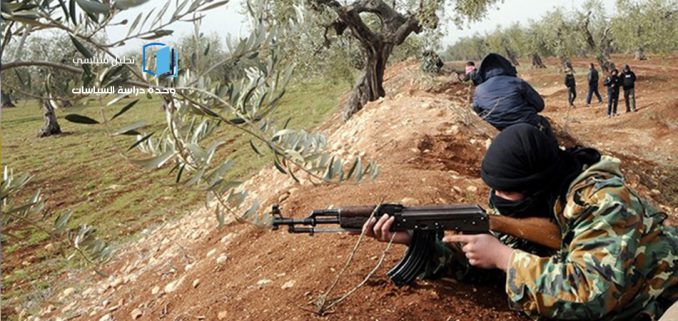Coinciding with the battle for Afrin, and based on the division of influence and tasks which was decided in Astana among the guarantor countries, came the battle for the Eastern Ghouta.
The regime mobilized large forces for this purpose after the other fronts quietened. The swift conclusion was secured by heavy Russian bombardment and the major destruction and killing that occurred in the opposition-controlled areas, especially in the Harasta area, and to a lesser extent in Hamouriyeh, Kafr Batna and Douma.
Over three weeks, more than 1,700 civilians became casualties, stuck in cellars that collapsed over their heads.
The Russians would not have been able to decide the battle so quickly if the relationship between the rebel groups in the Ghouta had since they were trapped there four years ago been different from the division of influence and destructive internal fighting witnessed.
What has been said about regime infiltrations of the rebel groups and the presence of agents in their ranks, and about this speeding the defeat, is no more than childish justifications to avoid taking responsibility for the defeat which occurred, and therefore the responsibility for residents' displacement to the north or their being forced to flee to regime camps without knowing what humiliation or death will befall them, as well as their young men being thrown into prison or onto the fronts to kill or be killed.
It was notable in the Ghouta battle – which has not totally concluded as it awaits the end of negotiations between Jaish al-Islam, who control Douma, and the Russians – that these rebel groups were shelled and struck individually, and that the regime’s military action was not what decided matters and was only wide in Hamouriyeh and Kafr Batna.
The lack of united leadership, and therefore the lack of coordination between these groups, in addition to the many authorities, sped each group’s process to search for a settlement at the expense of the other parties.
In this way, Ahrar al-Sham as usual led the way in all regions, followed by Faylaq al-Rahman, with its acceptance of a deal and expulsion, while Jaish al-Islam did not employ military efforts in accordance with the capabilities it has often displayed.
This has raised many questions among its popular base. The end of the negotiations, which have been ongoing for two weeks and continue at the time of the writing of this report, will reveal what Jaish al-Islam is able to secure with regards to its refusal to depart and its efforts to maintain its military power within a formula and with conditions.
Near-certain reports have been circulating that Iranian militias did not participate in the recent Ghouta battles, and if these reports are true the issue may not be related to whether it needs its efforts or not, as Iran is eager to have a presence in these areas, which it sees as strategic, but may perhaps come in the context of a message of reassurance to the United States and Israel that the Eastern Ghouta will not be under Iranian influence.
This contradicts the outcomes of Astana, which made the Damascus environs part of Iran’s share and considered the Ghouta an area of Iranian expansion around Sayeda Zeinab.
This explains the news that has been circulating about regional and international efforts made backstage with the Russians for Jaish al-Islam to stay in Douma.
How would Iran deal with this if it is true? And would its silence be temporary pending matters stabilizing for regime forces?
No one expected the rebel groups controlling the Ghouta to be victorious over the Russian air and land effort and the massive regime mobilization, but it had been possible to resist for long months to guarantee a better settlement.
However, their dispersion and the manner in which they had governed the area throughout many years of siege lost them the support of the population to a large extent, while the international community ignored them and was unable to implement its humanitarian Resolution 2401, which are all factors which contributed to speeding the Ghouta’s collapse.
In any case, the defeat of the rebel groups in an important area in terms of its position and symbolism in the course of the Syrian revolution, and given its proximity to the capital Damascus will have painful repercussions for these groups.
Regardless of the outcomes which the negotiations result in with Jaish al-Islam, foremost the exit of these groups from the conflict equation, in addition to the fact that many members will leave these groups and another portion will join other groups, we also cannot rule out some of them entering into internal conflicts in the areas where they concentrate in Idleb, leaving behind them a negligible experiment.
This article was translated and edited by The Syrian Observer. Responsibility for the information and views set out in this article lies entirely with the author.


